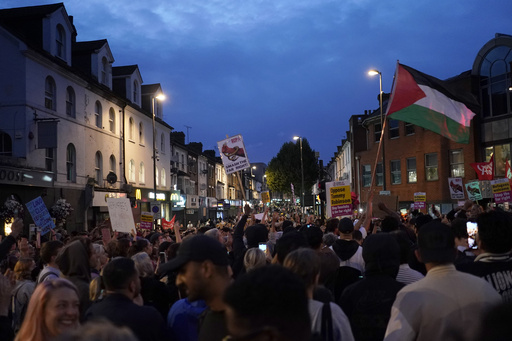British anti-racism campaigners took to the streets in towns and cities across the country as police implemented a strong presence to deter potential far-right demonstrations. Demonstrators carried signs with messages such as “Refugees Welcome” and chanted slogans affirming their right to the streets. They gathered on Wednesday to safeguard asylum service centers and immigration attorneys’ offices that were identified as potential targets for far-right attacks.
The government declared a national critical incident and placed 6,000 specially trained police officers on standby to address any disturbances. Despite a few arrests, protests and counterprotests were largely peaceful. Commissioner Mark Rowley of London’s Metropolitan Police Service commended the police’s show of force and the unity displayed by communities, which he said helped quell the anticipated far-right tumult.
While law enforcement authorities were relieved by the relative calm, they remain vigilant following false information about a knife assault that resulted in the deaths of three young girls in Southport, England, sparking several days of violence. Over 400 individuals have been detained nationwide after anti-immigrant groups clashed with police, attacked mosques, and disrupted two hotels housing asylum-seekers.
Police had braced for further unrest due to a list of over 100 potential targets circulated by far-right activists, including immigration lawyers’ offices and organizations supporting migrants. However, no significant incidents materialized. The government has committed to identifying and prosecuting those behind the disorder, including individuals instigating violence online. Stern penalties handed out on Wednesday served as a deterrent to potential demonstrators.
One of the first to be sentenced was Derek Drummond, 58, who received a three-year prison term for violent disorder and assaulting a police officer in Southport. Some defendants were visibly emotional upon learning they would be remanded in custody until their next court appearances. Additionally, authorities are contemplating imposing sanctions apart from imprisonment, such as banning rioters from attending soccer matches. Home Office minister Diana Johnson mentioned exploring various consequences for individuals involved in the unrest, including potential restrictions at sporting events to prevent criminal activities in local communities.



